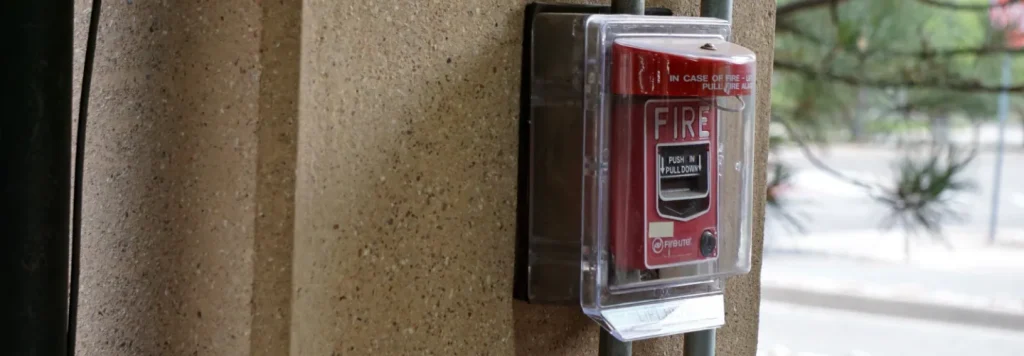Frigid temperatures may mean disruption to your fire protection systems – here are a few things to keep in mind relating to fire and ice this winter.
As temperatures begin to dip, most folks (correctly) worry about making sure their homes and cars are equipped for the cold. Those measures are important, especially relating to frozen pipes, ice dams, and minimizing slip and fall hazards; however, there are other important loss control measures that consider beyond your vehicle or residence—fire protection systems.
Fire protection equipment is especially vulnerable when arctic temperatures affect a building. If pipes freeze, a business or school could be forced to close temporarily if safety cannot be assured. Failure or disruption of these important fire protection systems can also be expensive to repair, which is why winter fire alarm safety is important to take into account.
Certain types of buildings and occupancies are more susceptible in extreme cold, and when they do experience a freeze, the damage can be greater than in other types of buildings. Some buildings are designed to make use of heat generated by human occupants. When vacant for long periods during extreme cold, the temperature can drop below freezing.
With the help of The Cincinnati Insurance Companies, discover some winter fire alarm safety tips to help you protect your property and fire prevention systems from the winter cold.
ESPECIALLY VULNERABLE BUILDINGS
Churches, schools, and multi-tenant mercantile buildings are especially at risk when they are unoccupied for several days at a time, especially during a holiday break or recess.
Fire protection equipment including water mains, extinguishers, hydrants, sprinkler systems, and post-indicator valves can be extremely vulnerable to drops in temperature during severe winter weather. Post indicator valves are the cast iron vertical indicator posts designed to operate the control valve of an automatic fire sprinkler system. If a fire occurs, frozen equipment could result in insufficient means to contain the fire.
WHAT YOU CAN DO
To protect your property, verify that all fire protection equipment is operating effectively, and if it is brought offline or damaged, have a qualified fire protection contractor repair the system and place it back into service.
- Plan for maintenance personnel to manage and monitor buildings during cold snaps, making more frequent visits to buildings or areas of buildings not normally occupied.
- Be certain that hydrants and their locations are properly marked so they may be easily located and cleared after a heavy snowstorm.
- Inspect all areas along the perimeter of the building to ensure they are sealed and there are no drafty areas.
- Drain wall hydrants and fire pump test connections that may be exposed to freezing.
- Verify that underground water mains have adequate depth of cover. For water mains that do not have adequate cover, ask if they be isolated and shut off to protect from freezing.
- Check packing on post indicator control valves for leaking, and repair as necessary.
- If fire pump suction is from a reservoir, make certain that the in-flow pipe is below the frost level (below grade) and deep enough in the water to prevent ice clogging the intake.
- Provide heat for dry-pipe sprinkler system enclosures. Make sure space heaters are in good operating condition.
- Test solutions in all anti-freeze sprinkler systems and add anti-freeze as necessary.
- Inspect and maintain all sprinkler systems in accordance with National Fire Protection Association (NFPA 13) and local standards.
It can be easy to overlook the importance of fire protection systems in the winter, but taking preventative measures for winter fire alarm safety can save you from big trouble down the road. And of course, if the worst should happen and you experience damage from fire, ice, or other weather-related incidents, be sure you have adequate insurance to cover any losses.
If you’re still on the lookout for an insurance agent and are local to the greater Rochester area, consider reaching out to The Feltner Group. We’re independent brokers working to ensure all our clients have the coverage they need for their home, business, or life.
